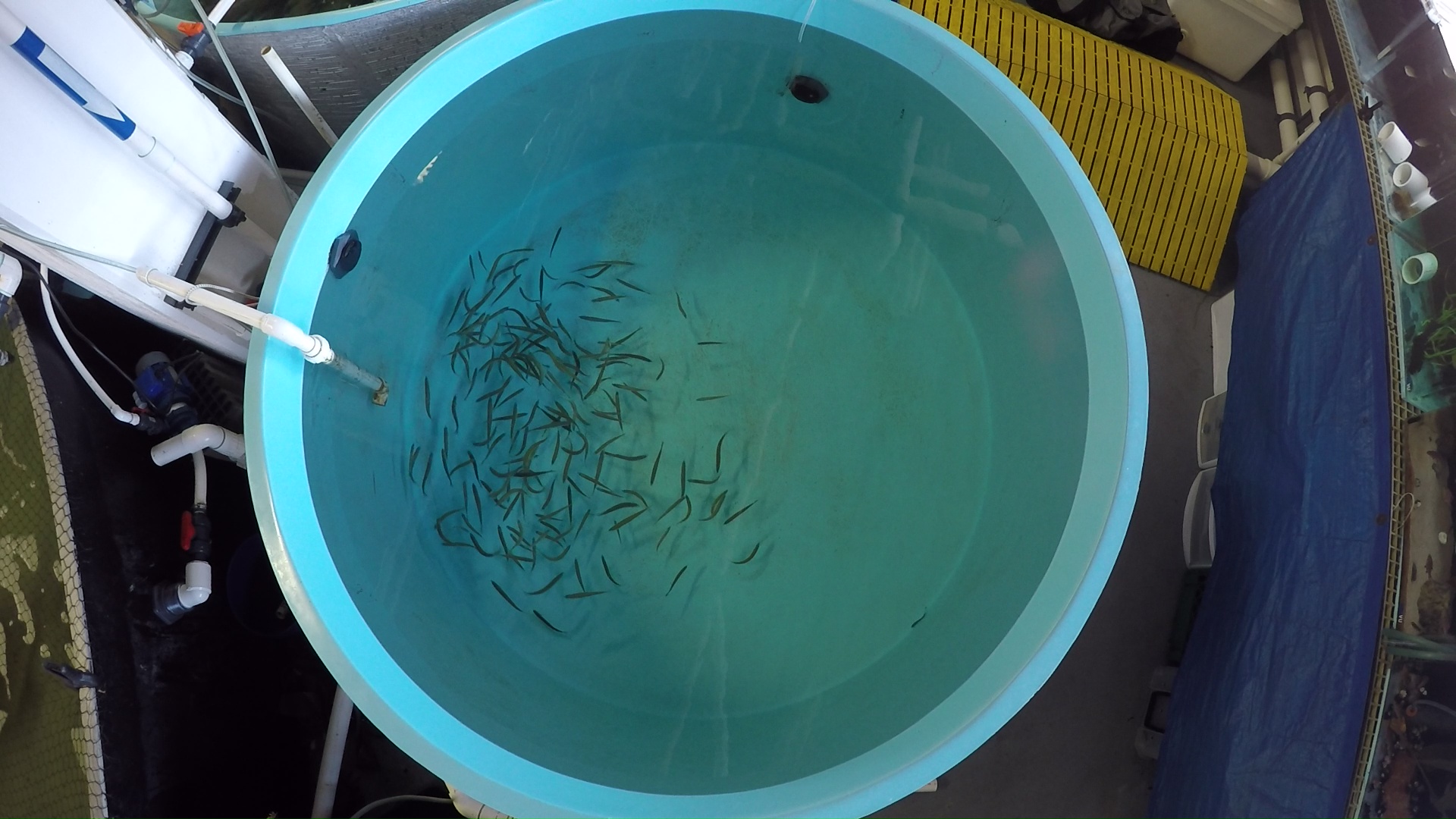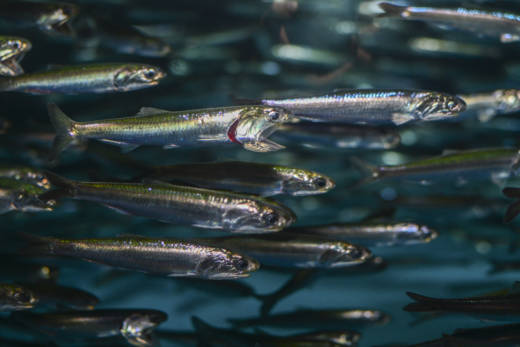Scientists have been trying to figure out why fish that normally eat algae are eating the plastic particles that float in the ocean. Those tiny fragments absorb chemicals like PCBs and DDT, and the average person in the U.S. eats about 15.8 pounds of fish and shellfish a year.
Researchers are trying to determine whether humans are eating fish contaminated with toxic chemicals, and are looking at the feeding behavior of fish as part of that work.
In a new study from UC Davis, researchers tested wild-caught anchovies and discovered the fish actually use smell to find food. Published recently in Proceedings of the Royal Society B: Biological Sciences, the study is the first to document this foraging behavior in anchovies.

Study author and ecologist Matthew Savoca, who is now at the National Oceanic and Atmospheric Administration, says the fish didn’t mistake clean plastic for food, only plastic covered in algae. The algae makes the trash smell like something to eat.
“This plastic probably looks attractive to these animals as well as potentially smelling attractive,” Savoca says. “Animals like anchovy or sea birds aren’t the only animals that make decisions based off multiple senses; I mean, we do this all the time, right?”
